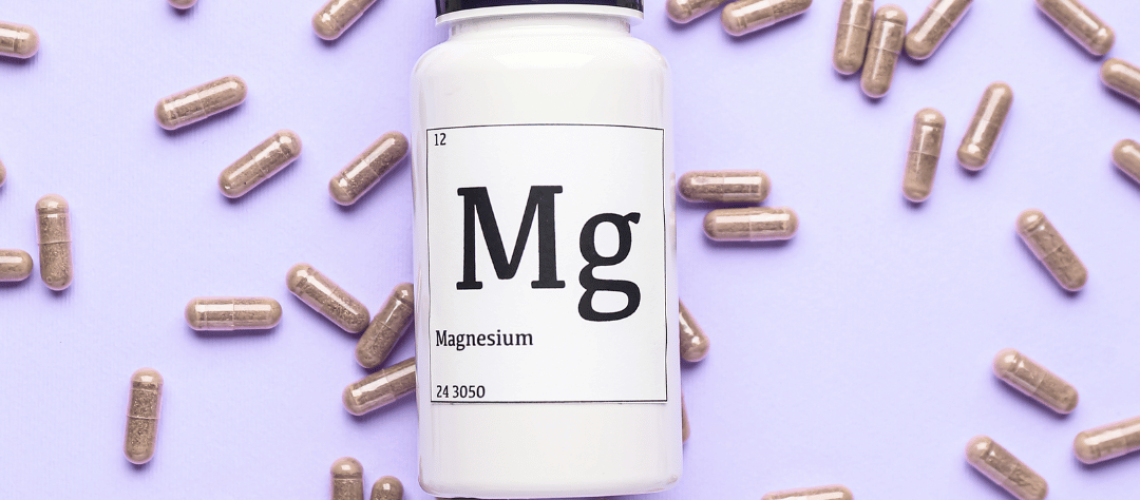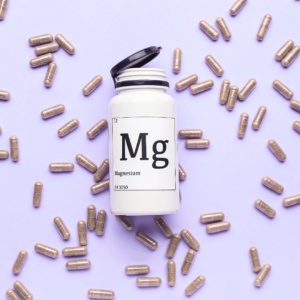If there was only one supplement/nutrient I could take for the rest of my life, it would be our old friend magnesium. By the end of this article, it will probably be your top choice too! Let’s explore.
Magnesium is a mineral essential for over 300 processes and chemical reactions in the body.
Top functions of magnesium
- Supports the nervous system, the HPO axis and reduces stress
- Supports sleep
- Supports muscle contractility
- Improves insulin sensitivity (important with PCOS)
- Reduces inflammation
- Reduces pain
- Supports ovulation
- Builds progesterone
- Supports oestrogen detoxification
And so much more! 300+ more things to be exact!
Is supplementation necessary?
Whilst in an ideal world we would be able to get all of the magnesium we require from our food and nutrition alone, for most of us this isn’t possible. Industrial farming practices have eroded the mineral content in the soil, meaning foods grown today contain lower levels of nutrients than they did in previous generations, purely due to the depletion of the soil.
In addition, many medications can deplete magnesium levels (including the pill!).
Our bodies also churn through magnesium when under stress. If you’re living in the modern world, your magnesium likely needs some extra TLC.
Magnesium is a relatively safe and well-tolerated supplement for many and can be an easy addition to your daily routine.
The quality of your supplement is important. Paying attention to both the dose and form of magnesium you’re taking is vital to achieving the outcomes you’re aiming for. There are many various forms of magnesium, we recommend steering clear of magnesium oxide and opting for forms such as magnesium glycinate and magnesium citrate.
How magnesium benefits menstrual health
There are a few circumstances relating to menstrual health where magnesium wouldn’t be beneficial.
Some conditions that do well with magnesium supplementation include
- Dysmenorrhea (painful periods)
- Endometriosis
- Adenomyosis
- Polycystic ovarian syndrome (PCOS)
- Hypothalamic amenorrhoea
- Low progesterone
- High oestrogen
- Irregular menstrual cycles
- PMS
- PMDD
- Perimenopause
- Menopause
Foods rich in magnesium
It’s important to still try to get good sources of magnesium through your food. Some foods rich in magnesium include:
- Dark leafy green veggies
- Chicken
- Fish
- Shellfish
- Pork
- Beef
- Turkey
- Lamb
- Hemp seeds, pumpkin seeds
- Coconut milk
Is magnesium on your favourites list yet? There’s not much it can’t do!
Before starting any new supplement, it’s important to check with your trusted healthcare practitioner to ensure it’s right for you.





